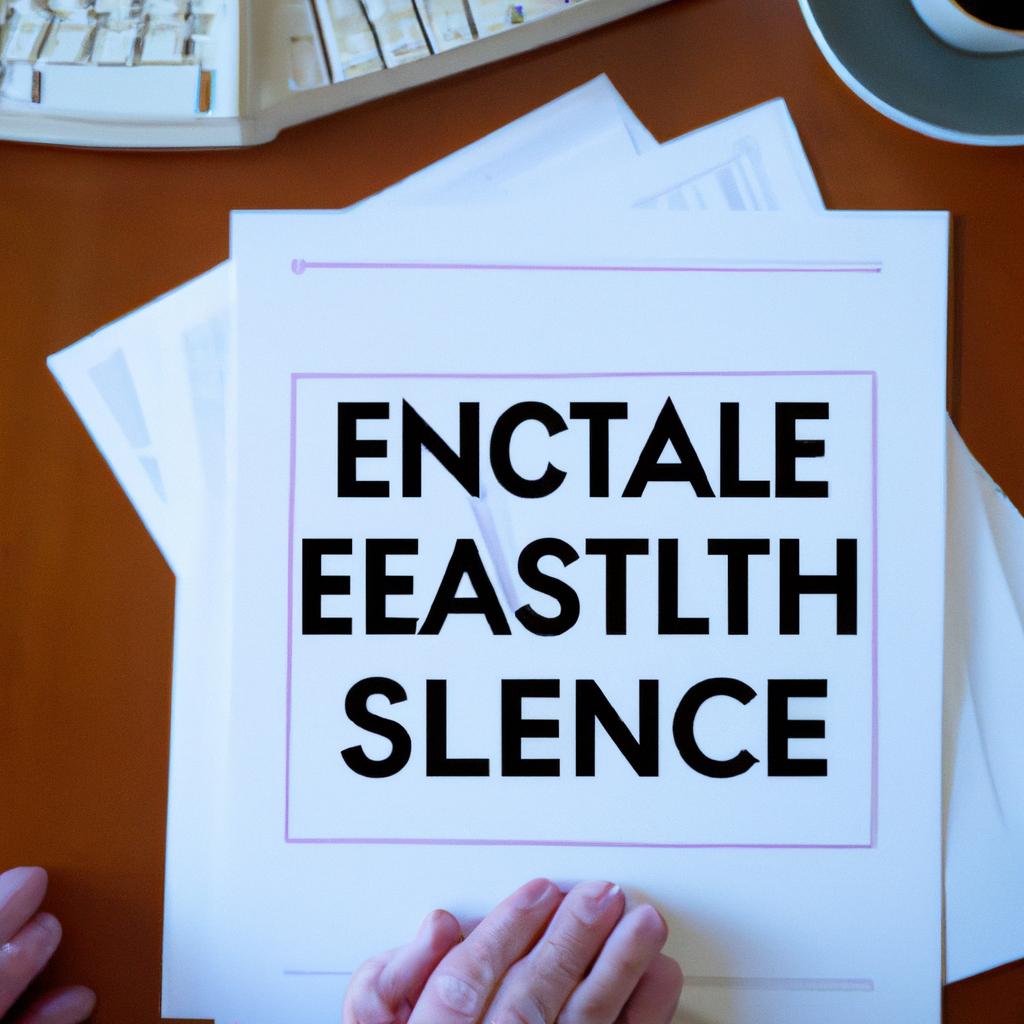In the realm of estate administration, navigating the intricate web of filing fees can prove to be a formidable task. Within the state of North Carolina, these fees play a crucial role in the execution of important legal documents pertaining to wills, trusts, and probate matters. At Morgan Legal Group, we understand the nuances of North Carolina estate filing fees and are well-equipped to guide you through the process with precision and expertise. Join us as we delve into the complexities of estate filing fees in North Carolina and uncover the essential information you need to know.
Understanding North Carolina Estate Filing Fees and Regulations
When it comes to estate planning in North Carolina, it is crucial to understand the various filing fees and regulations that govern the process. Estate filing fees can vary depending on the size of the estate and the specific documents being filed. It is important to ensure that all necessary paperwork is completed accurately to avoid any delays or additional fees.
North Carolina has specific regulations in place regarding estate filing fees, inheritance taxes, and probate procedures. It is essential to work with an experienced estate planning attorney who can guide you through the process and ensure that your assets are distributed according to your wishes. Understanding these fees and regulations is key to navigating the estate planning process smoothly and efficiently.

Strategies to Minimize Estate Filing Costs in NC
When it comes to minimizing estate filing costs in North Carolina, there are several strategies that can be utilized to ensure that expenses are kept to a minimum. One effective way to reduce costs is by working with an experienced estate planning attorney who is well-versed in North Carolina laws and regulations. An attorney can help navigate the complexities of the estate filing process and ensure that all necessary documentation is completed accurately and efficiently.
Another strategy to consider is to consolidate assets and simplify the estate as much as possible. By consolidating assets into a single trust or account, you can streamline the distribution process and minimize the amount of paperwork and fees associated with filing an estate. Additionally, working with a financial planner to maximize the tax benefits of your estate can also help reduce costs in the long run.

Navigating Complexities: Expert Recommendations for Efficient Estate Filing in North Carolina
When it comes to estate filing in North Carolina, there are various complexities that individuals need to navigate. Expert recommendations can help streamline the process and ensure efficiency. Understanding the fees associated with estate filing is crucial in order to avoid any unnecessary costs or delays.
One important aspect to consider is the filing fees for estate documents in North Carolina. It is essential to be aware of these fees in order to properly budget for the estate filing process. Working with a knowledgeable estate planning attorney can help you understand all the associated costs and make informed decisions. Additionally, the attorney can guide you through the process of completing the necessary paperwork and filing it with the appropriate authorities, ensuring a smooth and efficient estate filing process.
Q&A
Q: What are estate filing fees in North Carolina?
A: Estate filing fees in North Carolina refer to the costs associated with filing paperwork related to the administration of a deceased person’s estate.
Q: Who is responsible for paying these fees?
A: Typically, the executor or personal representative of the estate is responsible for paying the filing fees.
Q: How much do estate filing fees typically cost in North Carolina?
A: The cost of estate filing fees in North Carolina can vary depending on the size and complexity of the estate. It is recommended to contact the local probate court for specific fee information.
Q: What forms of payment are accepted for estate filing fees?
A: Most probate courts in North Carolina accept various forms of payment, including cash, check, and credit/debit cards.
Q: Are there any exemptions or waivers available for estate filing fees?
A: Certain individuals, such as low-income individuals or beneficiaries of the estate, may be eligible for exemptions or waivers of estate filing fees. It is best to consult with a probate attorney for assistance in exploring these options.
Q: Are estate filing fees tax-deductible?
A: Estate filing fees may be tax-deductible as part of the administrative expenses of the estate. It is recommended to consult with a tax professional for specific guidance on this matter.
To Wrap It Up
In conclusion, understanding the filing fees associated with estate transactions in North Carolina is vital for anyone navigating the complexities of probate and estate administration. By being aware of these costs, individuals can better plan and budget for the settlement of their loved one’s estate. Whether you are a personal representative, beneficiary, or attorney, being informed about NC estate filing fees ensures a smoother and more efficient process. With the right knowledge and preparation, handling estate matters can be more manageable and less stressful. Thank you for reading, and we wish you success in navigating the world of estate administration in North Carolina.
 As the old saying goes, “there are only two things certain in life: death and taxes.” But did you know that when it comes to settling the affairs of a deceased loved one in North Carolina, you may also have to pay an additional tax known as an estate filing fee? This is a cost that many people are not aware of, and as a result, it can come as a surprise during an already stressful and emotional time. In this article, we will delve into the details of North Carolina’s estate filing fees, including what they are, how they are calculated, and why they are necessary.
As the old saying goes, “there are only two things certain in life: death and taxes.” But did you know that when it comes to settling the affairs of a deceased loved one in North Carolina, you may also have to pay an additional tax known as an estate filing fee? This is a cost that many people are not aware of, and as a result, it can come as a surprise during an already stressful and emotional time. In this article, we will delve into the details of North Carolina’s estate filing fees, including what they are, how they are calculated, and why they are necessary.
What are NC Estate Filing Fees?
NC estate filing fees, also known as the estate administration tax, is a tax that must be paid to the North Carolina court system when someone dies. This fee is used to cover the costs associated with managing and distributing the assets of a deceased individual. Essentially, it is the cost of settling an estate through the probate process.
The probate process is the legal method for distributing a person’s assets after they pass away. During this process, the court oversees the collection of all the decedent’s assets, ensures that any outstanding debts are paid off, and distributes the remaining assets to the heirs or beneficiaries. The estate filing fee is used to cover the administrative costs of this process, including court fees, attorney fees, and any other related expenses.
How are NC Estate Filing Fees Calculated?
The estate filing fee in North Carolina is calculated based on a percentage of the total value of the decedent’s estate. The current rate is 0.4% of the estate’s value, with a minimum fee of $120 and a maximum fee of $6,000. This means that if an individual has a relatively small estate worth $30,000, the filing fee would only be $120. However, for a larger estate valued at $1.5 million, the filing fee would be the maximum of $6,000.
It’s important to note that this fee is in addition to any other fees associated with settling an estate, such as court costs and attorney fees. It’s essential to budget for these fees when planning for the distribution of an estate to avoid any unexpected financial burdens.
The Value of Proper Estate Planning
Many people may wonder if there’s any way to reduce or avoid paying NC estate filing fees. The short answer is yes, proper estate planning can help minimize the impact of these fees. By working with an experienced estate planning attorney, individuals can structure their assets in a way that minimizes the value of their estate, thus reducing the estate filing fees for their heirs. Additionally, creating a will or trust can expedite the probate process, which can also help reduce costs.
Unfortunately, many people neglect proper estate planning, either out of a fear of discussing their own mortality or simply because it’s not something they want to think about. However, failing to plan now can result in higher costs, confusion, and disputes among family members later on. By taking the time to plan and organize your affairs, you can ensure that your wishes are carried out and your loved ones are not left with additional financial stress after your passing.
Practical Tips for Managing NC Estate Filing Fees
Now that we understand what estate filing fees are and how they are calculated, you may be wondering how to manage or reduce these fees. Here are a few practical tips to keep in mind:
– Plan ahead: The best way to reduce estate filing fees is to plan ahead. Work with an experienced estate planning attorney to structure your assets and create a will or trust that reflects your wishes.
– Consider alternative methods of estate distribution: In addition to a traditional will, there are other methods of distributing your assets that may have lower estate filing fees, such as a living trust or joint ownership with rights of survivorship.
– Keep updated records: Make sure to keep all records of your assets and update them regularly to reflect any changes. This will help ensure that your estate is accurately valued and could potentially reduce your estate filing fees.
– Communicate with loved ones: It’s important to communicate your wishes for your estate with your loved ones. This can help prevent any confusion or disputes that could result in additional costs.
In Conclusion
NC estate filing fees can be an additional financial burden during an already difficult time. However, with proper estate planning and an understanding of the fees and how they are calculated, it is possible to minimize their impact on your loved ones. By taking the time to plan now, you can ensure that your assets are distributed according to your wishes and that your loved ones are not faced with any unnecessary costs. Always consult with an experienced estate planning attorney for personalized advice on managing NC estate filing fees and planning for the management of your estate.

